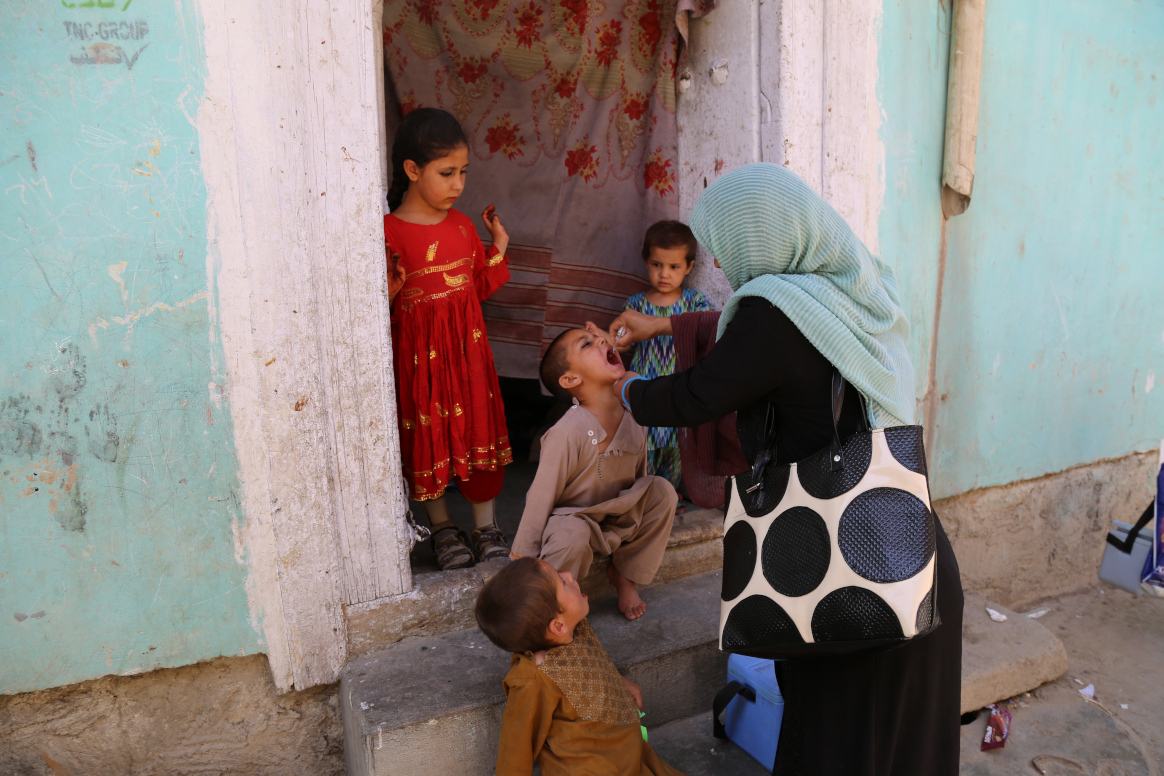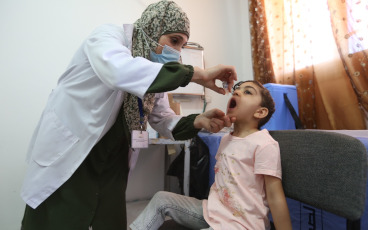As a mother I never want to see a child paralyzed in her mother’s arms
Committed Afghans are working to better reach children in the midst of a shifting security landscape

Afghanistan is strengthening its polio eradication programme in order to better reach children with vaccines in the midst of a shifting security landscape. Large swathes of the country in the north, central and south-eastern regions remain polio-free, despite the deteriorating security situation throughout the country. However, these gains are fragile and, in other areas, the virus continues to circulate. Access challenges remain in key areas, making it difficult for health workers to reach every last child.
Shukria, a polio vaccination coordinator, has dedicated much of her life to seeing Afghanistan polio-free. She is one of the many people working tirelessly to improve the polio eradication programme in her country. Beginning as a volunteer, she was later employed as a supervisor and today is a programme coordinator.
“As a mother I never want to see a child paralyzed in her mother’s arms,” says Shukria, explaining her motivation to vaccinate children against polio. “We can prevent this disease with just two drops of polio vaccine. This vaccine is very important for children.”
She and her team visit homes, street-by-street, to ensure all children are immunized. Most of the children paralyzed by polio this year are very young (under 2 years old) and have had little or no vaccine. This means that the work of people like Shukria is crucial to reduce the number of children missed on vaccination campaigns.
The recently updated National Emergency Action Plan, which outlines what needs to be done to make Afghanistan polio-free, focuses on reducing missed children through campaigns, complementary immunization activities and innovative strategies. Some steps are already underway, including improved mapping of households so that they can be better served by health workers like Shukria, better strategies for revisiting households where children were missed, building the skills of frontline workers, and improving the way that communities and families are engaged by vaccinators.
The country has also been working to improve surveillance. “When a child is affected by polio, then 200 children in his or her area could be affected,” explains Shukria. By expanding the use of environmental surveillance, the programme will have a better idea of where the poliovirus is circulating, even when it doesn’t show itself through the symptoms of paralysis. It is only with a highly detailed understanding of where the virus is and high levels of immunity in those areas as a result of this knowledge that we will be able to ensure a polio-free future in Afghanistan.












